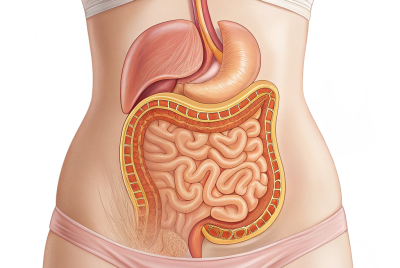How to Get Rid of Brain Fog During Menopause
A personal guide from one woman to another on how to get rid of brain fog naturally
You’re Not Losing Your Mind—I Promise
Three months ago, I stood in my kitchen holding my car keys, staring blankly at the refrigerator. I had walked in there with a purpose, but for the life of me, I couldn’t remember what it was. Sound familiar? If you’re nodding your head right now, you’re not alone, and more importantly—you’re not going crazy.
I’m 46, deep in the throes of perimenopause, and until recently, brain fog was my unwelcome daily companion. That mental cloudiness that makes you feel like you’re thinking through molasses? The tip-of-your-tongue moments that happen ten times a day? The frustrating inability to focus on tasks that used to be second nature? I’ve been there, sister. We all have.
But here’s what I’ve learned through months of research, trial and error, and yes—some tears of frustration: brain fog isn’t permanent, and it’s absolutely fixable. Let me share what I’ve discovered on this journey back to mental clarity.
What Brain Fog Really Feels Like (Because Someone Finally Gets It)
Before we dive into solutions on how to get rid of brain fog, let’s acknowledge what we’re dealing with. Brain fog isn’t just “being forgetful sometimes.” It’s that persistent feeling of mental sluggishness that makes you feel like a stranger in your own mind.
For me, it showed up as:
- Walking into rooms and completely forgetting why I went there
- Struggling to find words that used to come easily (hello, “tip-of-the-tongue” syndrome!)
- Feeling mentally exhausted by 2 PM, even on easy days
- Taking twice as long to process information at work
- That awful “spaced out” feeling, like I was watching my life through fog
If this resonates with you, take a deep breath. You’re not alone, and there’s hope ahead.
The Real Culprits Behind Our Mental Fog
After diving deep into research (and pestering my healthcare team), I discovered that brain fog rarely has just one cause. It’s usually a perfect storm of factors, and during perimenopause, our hormones are often the main culprit stirring up that storm.
The Hormone Connection That Changes Everything
Here’s what blew my mind: estrogen isn’t just about our reproductive system. This powerful hormone is like a CEO for our brain function. It:
- Boosts acetylcholine, the neurotransmitter responsible for memory and learning
- Enhances blood flow to our brain, delivering crucial oxygen and nutrients
- Acts as a natural anti-inflammatory, protecting our cognitive function
When estrogen starts its roller coaster ride during perimenopause, our brains feel every dip and turn. Add in declining progesterone (which normally keeps us calm and helps us sleep), and you’ve got a recipe for mental cloudiness.
But hormones aren’t working alone.
Other factors contributing to brain fog
Chronic Stress and Sky-High Cortisol
Between managing work, family, and the general chaos of midlife, my stress levels were through the roof. Chronic stress floods our system with cortisol, which directly impairs memory and focus. It’s like having a fire alarm going off in your brain 24/7.
Blood Sugar Roller Coasters
Those afternoon energy crashes weren’t just about being tired—they were directly affecting my ability to think clearly. When blood sugar spikes and crashes, so does our mental clarity.
Sleep That Wasn’t Actually Restful
Even when I was getting seven hours, I wasn’t getting quality sleep. Our brains need deep sleep to consolidate memories and detoxify. Without it, we wake up feeling like our minds are wrapped in cotton.
Nutrient Deficiencies We Don’t Even Know We Have
Despite eating what I thought was a healthy diet, I was deficient in several key nutrients essential for brain function. More on this crucial piece later.
The Nutrients That Became My Brain’s Best Friends
This is where my journey took a turn for the better. I learned that certain nutrients act like premium fuel for our brains, especially during hormonal transitions.
Omega-3 Fatty Acids: My Mental Clarity Game-Changer
I started taking 1,500mg of combined EPA and DHA daily, and within three weeks, I noticed a difference. Why? DHA makes up 30% of our brain matter—it’s literally brain food. Good sources of Omega-3 Fatty Acids are salmon, sardines, and walnuts. But if you are vegetarian like me, you can indulge in flaxseeds (grind for better absorption), chia seeds, walnuts, algal oil (vegan DHA source), and hemp seeds.
B Vitamins: The Energy and Focus Boosters
A high-quality B-complex supplement (with methylated forms) became non-negotiable. These vitamins are crucial for neurotransmitter production and energy metabolism. I noticed my afternoon mental crashes became less severe within two weeks.
Magnesium: The Miracle Mineral for Sleep and Stress
This was huge for me. I started taking 400mg of magnesium glycinate before bed, and not only did my sleep improve dramatically, but my daytime anxiety decreased too. Better sleep = clearer thinking the next day.
My favorite magnesium-rich foods:
- Pumpkin seeds (I sprinkle them on everything)
- Dark leafy greens like spinach
- Dark chocolate (85% cocoa—doctor’s orders!)
- Almonds and avocados
Vitamin D3 + K2: The Mood and Brain Fog Lifters
After testing severely low in vitamin D, I started supplementing with 4,000 IU daily (along with K2 for absorption). The difference in my mood and mental clarity was remarkable. Most of us are deficient, especially if we’re not getting daily sun exposure.
Choline: The Memory Enhancer I Wish I’d Known About Sooner
I added more eggs to my diet and started supplementing with Alpha-GPC. Choline is the precursor to acetylcholine—that memory neurotransmitter that estrogen helps produce. Think of it as giving your brain the raw materials it needs to make memories stick.
How To Get Rid Of Brain Fog: Natural Strategies That Actually Work
Supplements helped, but lifestyle changes were the real game-changers. Here’s what moved the needle for me:
Balancing Blood Sugar Changed Everything
I stopped eating naked carbs (carbs without protein or fat) and started pairing every meal and snack strategically:
- Breakfast: Greek yogurt with berries and nuts instead of cereal, or oatmeal with almond butter and ground flaxseeds
- Snacks: Apple slices with almond butter instead of crackers alone, or hummus with vegetables
- Dinner: Lentil curry with quinoa and roasted vegetables, or chickpea salad with avocado and tahini dressing
The result? No more 3 PM mental crashes.
Sleep Became My Non-Negotiable
I implemented what I call my “brain fog bedtime routine”:
- Magnesium supplement 30 minutes before bed
- Room temperature at 65°F (cooler than I used to prefer, but my sleep quality improved dramatically)
- No screens for an hour before bed (this was hard but worth it)
- Chamomile tea with a teaspoon of honey
Movement That Fits Real Life
I’m not talking about intense workouts (though those are great if you enjoy them). I started with:
- 20-minute walks after lunch (goodbye, afternoon fog!)
- Taking the stairs whenever possible
- Gentle yoga before bed
- Dancing while cooking dinner (my family thinks I’m crazy, but it works!)
Stress Management That Actually Fits into Busy Life
Meditation apps felt overwhelming, so I found simpler ways to manage stress:
- 4-7-8 breathing when I felt overwhelmed (4 seconds in, hold for 7, out for 8)
- Five minutes of morning journaling with my coffee
- Saying no to commitments that drained my energy
- Ashwagandha supplement (300mg daily) to help my body handle stress better
How To Get Rid Of Brain Fog: My Personal Protocol
After months of experimentation, here’s the routine that brought back my mental clarity:
Morning (7:00 AM):
- Large glass of water with electrolytes
- Protein-rich breakfast (usually eggs with vegetables)
- B-complex vitamin and vitamin D3
- 10 minutes of morning sunlight (game-changer for energy!)
Midday (12:00 PM):
- Omega-3 rich lunch (often a big salad with walnuts)
- 20-minute walk outside
- Handful of pumpkin seeds or almonds if I need a snack
Evening (6:00 PM):
- Dinner focused on protein and vegetables
- Ashwagandha supplement
- 30 minutes of gentle movement or stretching
Before Bed (9:30 PM):
- Magnesium supplement
- Chamomile tea
- Cool, dark room for optimal sleep
When to Seek Professional Help
While natural approaches worked wonders for me, some situations require medical attention. Consider seeing a healthcare provider if you experience:
- Sudden, severe memory loss or confusion
- Brain fog that doesn’t improve with lifestyle changes after 2-3 months
- Symptoms interfering significantly with work or relationships
- Signs of thyroid issues (unexplained weight gain, extreme fatigue, hair loss)
Tests I found helpful:
- Complete thyroid panel (TSH, T3, T4, reverse T3)
- Vitamin D, B12, and iron levels
- Hormone testing (estrogen, progesterone, cortisol)
- Food sensitivity testing
Your 7-Day Quick-Start Plan To Get Rid Of Brain Fog
Ready to begin? Here’s how I recommend starting:
Days 1-2: Foundation Reset
- Drink 2-3 liters of water daily
- Eliminate processed sugar and alcohol
- Get 7-8 hours of sleep
Days 3-4: Nutrient Boost
- Add omega-3 rich foods (walnuts, flaxseeds, chia, salmon (if you are not vegetarian))
- Take a high-quality multivitamin
- Include leafy greens and berries daily
Days 5-6: Stress and Sleep Focus
- Practice 5-10 minutes of deep breathing daily
- Implement a calming bedtime routine
- Try magnesium supplement before bed
Day 7: Brain Training
- Do a crossword puzzle or try a new recipe
- Take a 30-minute nature walk
- Reflect on any improvements you’ve noticed
Building Long-Term Mental Clarity
The strategies that have kept my brain fog at bay long-term:
- Morning sunlight ritual: 15 minutes outside with my coffee sets my circadian rhythm
- Movement breaks: I walk for 5 minutes every hour during work
- Brain challenges: Learning Spanish on my phone app, trying new recipes, reading diverse books
- Social connections: Regular coffee dates with friends (isolation makes brain fog worse)
- Consistent sleep schedule: Same bedtime and wake time, even on weekends
You’ve Got This, and Your Best Days Are Ahead
Six months ago, I honestly wondered if the sharp, focused woman I used to be was gone forever. I questioned whether this foggy version of myself was just the “new normal” of midlife. I’m here to tell you it’s not.
The journey back to mental clarity isn’t always linear. Some days will be better than others, and that’s okay. Be patient with yourself as you experiment with what works for your unique situation. Your brain is incredibly resilient and capable of healing, even during the hormonal chaos of perimenopause.
Remember, brain fog is not a character flaw, a sign of weakness, or evidence that you’re “getting old.” It’s a symptom with solutions, and you deserve to feel mentally sharp and confident again.
Start with one or two changes that feel manageable. Maybe it’s adding omega-3s to your morning routine or committing to a 10-minute evening walk. Small steps lead to big transformations, and every woman who has walked this path before you is cheering you on.
Your clear, focused mind is waiting for you on the other side of this fog. Let’s go find it together.
Related Article
Brain Health Supplements: Nurture Your Mind for Lifelong Wellness
Frequently Asked Questions on How To Get Rid Of Brain Fog
Q: How long does it typically take to see improvements in brain fog?
A: In my experience and research, most women start noticing improvements within 2-4 weeks of implementing dietary and supplement changes. Sleep improvements can be felt within days, while hormonal balance may take 2-3 months. Be patient—your brain is healing, even when you can’t feel it happening yet.
Q: Can brain fog during perimenopause be completely eliminated?
A: Definitely! While occasional mental lapses are normal for everyone, the persistent, debilitating brain fog associated with perimenopause can be significantly improved or eliminated entirely. The key is addressing the root causes rather than just managing symptoms.
Q: Are there any foods I should completely avoid to get rid of brain fog?
A: While everyone’s triggers are different, I found that eliminating processed sugar, excessive caffeine (more than 2 cups of coffee), and foods I was sensitive to (for me, gluten and dairy) made a huge difference. An elimination diet can help you identify your personal triggers.
Q: Is it safe to take all these supplements together?
A: Most of the supplements I mentioned are generally safe for healthy adults, but it’s always wise to consult with a healthcare provider, especially if you’re taking medications or have health conditions. Start with one or two supplements and add others gradually to see how your body responds.
Q: What if I can’t afford all the supplements mentioned?
A: Start with the basics that give you the most bang for your buck: a high-quality multivitamin with B vitamins, omega-3s (even fish oil capsules from the grocery store), and magnesium. Focus on food sources when possible—eggs for choline, fatty fish for omega-3s, leafy greens for folate. Many improvements can be made through diet and lifestyle changes alone.





